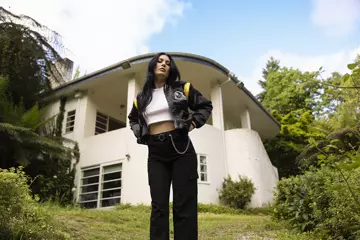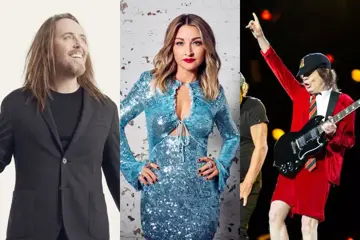Last week was weird, and usage of the term "NFT" has seemingly erupted online. As the music industry took another step towards a return to business as usual, artists took to social media to announce their foray into the world of blockchain-based art. Grimes sold her WarNymph work in a limited format of online digital collectibles – easily viewable and replicable - for US$5.8 million, followed by announcements from Flume, Yaeji, Disclosure, Toro Y Moi, Sevdaliza and more for audio-visual releases to be minted as NFTs. This consisted of limited edition art auctioned off to those with deep pockets, but what does this mean for artists and fans moving forward? Is this simply a cash grab, or insight into the next destabilising technology in the creative sector?
What is NFT?
A Non-Fungible Token refers to the metadata in blockchain technology connected to digital art, creating a tradeable asset that is instantly verifiable and transferable. The metadata adds authenticity, ownership and scarcity to digital art. Creators can now code royalty collection into their auctioned artwork, providing a percentage of sale profits each time ownership changes hands. Blockchain technology documents history and origin, ensuring the original creator receives royalties from secondary sales.
In the current environment when an artist’s limited run of rare vinyl is resold for 1000s of dollars, they do not receive any compensation. However, if the artist were to mint an equivalent limited edition NFT, every time it changes hands the original artist would receive a royalty. The art can be an image, meme, game, video, song or text file. These can be replicated and shared on the internet and only the official artist-minted copy will have the imbedded code to verify authenticity, as well as ensure payment.
So Grimes, Flume and Disclosure are in the game. Who else?
Grimes’ splash onto the digital marketplace certainly made noise, however she is not alone. Groove-funk-house purveyors The Knocks have recently released a series of tasteful audio-visual pieces on the NiftyGateway platform, while electronic artist 3LAU has taken it a step further, netting revenue of $11million for his first tokenised album. Linkin Park’s Mike Shinoda sold an original song for $30,000, while Lil Yachty sold his social token $YACHTY, providing fans with exclusive access to online parties and receiving personal items from the rapper’s career. Disclosure created a song live on Twitch, then minted it online that evening receiving 43 Ethereum (roughly AU$88k) – a new record for the highest sale on the ZORA platform.
Okay... So what's next?
Don't miss a beat with our FREE daily newsletter
The relationship between creator and fan has typically been defined by intermediary platforms - be it labels, brands or distributors – utilising artists’ creations to drive revenues and turn healthy profits. In this ecosystem, we have seen musicians lose out on a large percentage of these profits. As of 2018 artists were taking home as little as 12% of total industry earnings. Mike Shinoda took to Twitter to comment on the sale of his song for $30,000, saying that, traditionally, "I would never get even close to $10k, after fees by DSPs, label, marketing, etc." Undoubtedly current music platforms and distributors play an important part in the release and consumption of music, however in light of a pandemic and plummeting artist revenues, a cultural shift may be on the horizon.
Just how disruptive this will be for the modern music landscape remains to be seen. Currently, the NFT market is overrun with an unhealthy mix of speculative buyers and millionaire investors looking for a quick buck. Existing outside label contracts, this technology can certainly provide a means of boosting cash flow (or its crypto equivalent) for modern artists. Artists should be excited by a decentralisation of revenue that may arrive via blockchain, as well as the recognition in the digital sphere for creative license.
Welcome to crypto-art.
Words by Sam Clark
SEE ALSO
ON THE PATH TO COVID-RECOVERY, LIVE MUSIC HAS BEEN ABANDONED
INTERNATIONAL WOMEN’S DAY IS EXHAUSTING FOR MANY THIS YEAR, AND FOR GOOD REASON
INSIDE THAT TIME DAFT PUNK LAUNCHED THEIR ALBUM IN REGIONAL NSW
















